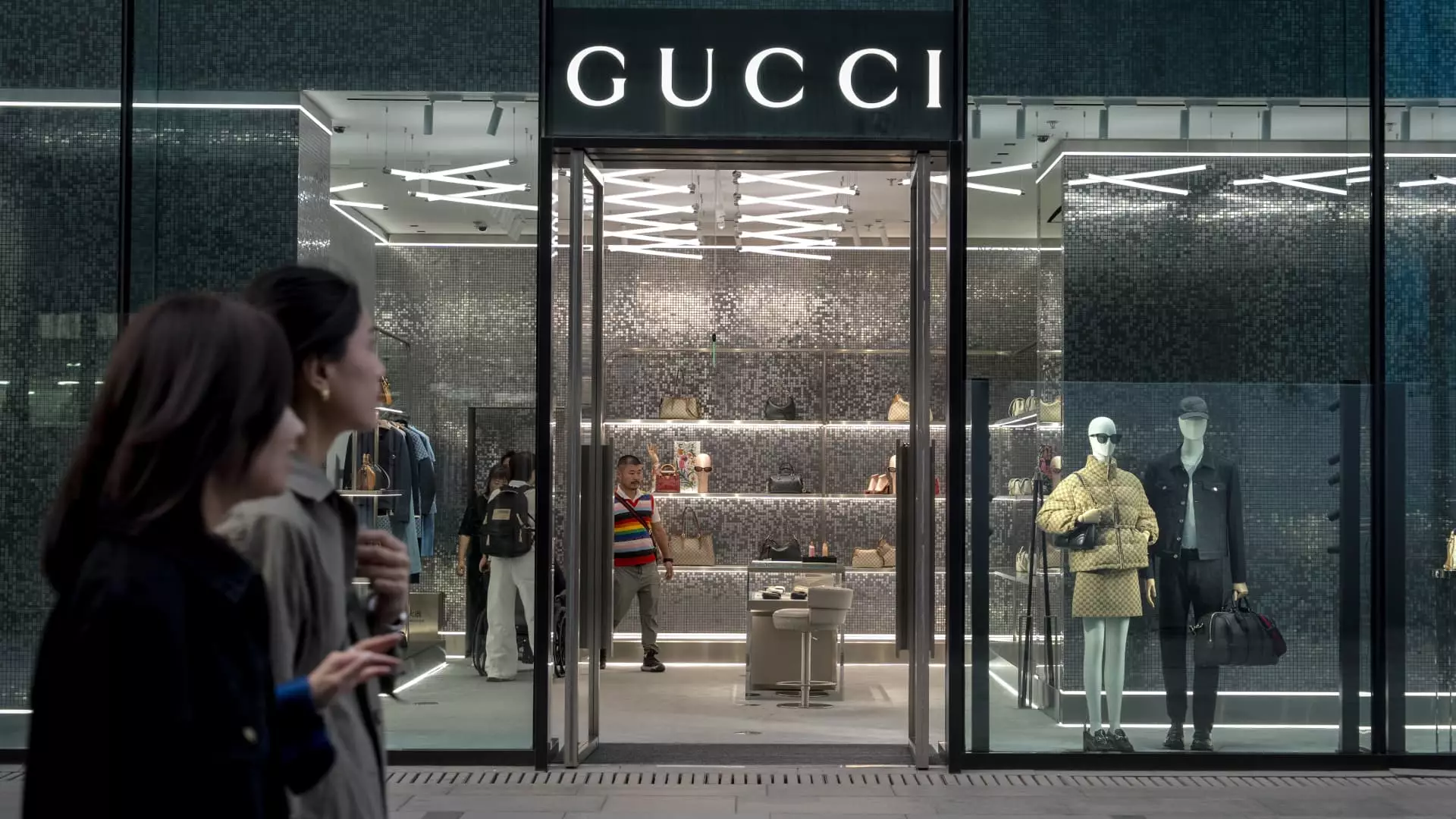The abrupt announcement that Demna Gvasalia will assume the artistic director position at Gucci shocked investors, culminating in a steep 10.75% decline in Kering’s shares on Friday. This marks the most significant drop since the 2008 financial crisis and raises serious questions about Kering’s strategic direction. The decision to elevate Demna, who has successfully helmed Balenciaga, indicates an urgent need for revitalization within an iconic yet struggling brand. Kering’s CEO, François-Henri Pinault, praised Demna’s creativity but failed to address the immediate concerns over Gucci’s declining financial performance. Investors are rightfully anxious; changes in leadership don’t guarantee successful turnarounds, especially not within difficult market conditions.
Demna’s Controversial Background: A Double-Edged Sword
Demna’s reputation is as polarizing as it is groundbreaking. He has brought streetwear culture to the forefront of luxury fashion, blending aesthetics and accessibility. However, his tenure at Balenciaga has also been marred by controversy, such as the infamous ad campaign that featured children in unsettling scenarios. This kind of audacity can be a double-edged sword; while it might attract avant-garde consumers, it could alienate Gucci’s traditional customer base. The emblematic Gucci brand now finds itself at a crossroads. Do they continue courting controversy for attention or return to their classic roots and craftsmanship, which have historically attracted loyal consumers?
The Weight of Expectations for Gucci’s Revival
With Gucci accounting for nearly half of Kering’s revenue, the stakes couldn’t be higher. The plunging sales of 24% year-on-year in Q4, alongside a group revenue fall of 12%, indicate significant market misalignment. Demna’s appointment is seen as a potentially game-changing move, yet there’s a stark reality here: the industry is undergoing a seismic shift toward “quiet luxury,” leaving Gucci’s maximalist approach in jeopardy. Analysts at Jefferies emphasize that Kering must act rapidly to rejuvenate Gucci’s appeal. The delay until July 2025 could stifle their efforts. If Demna’s influence doesn’t manifest at the Milan fashion show in September, the brand risks being relegated to the sidelines of the luxury landscape.
China’s Critical Role and the Need for Vision
The faltering demand from the Chinese market further complicates the picture. As luxury buyers become increasingly discerning, Kering needs a unified vision for what Gucci should stand for in 2025 and beyond. The focus should not merely be on upping market share but on crafting narratives that resonate with contemporary consumers. Gucci needs to find a balance between innovative audacity and brand authenticity, striking chords with both the younger generation and long-time patrons.
In an era defined by changing perceptions of luxury, Demna must neither force-feed provocative elements nor regress into previous patterns. The industry is watching closely—Gucci’s next moves could redefine what luxury fashion truly means. If Kering seeks to recover from this tumultuous period, there must be a commitment to both creative boldness and strategic foresight. The time for transformative change is now, or else Gucci risks becoming another relic in an ever-evolving landscape.


Leave a Reply